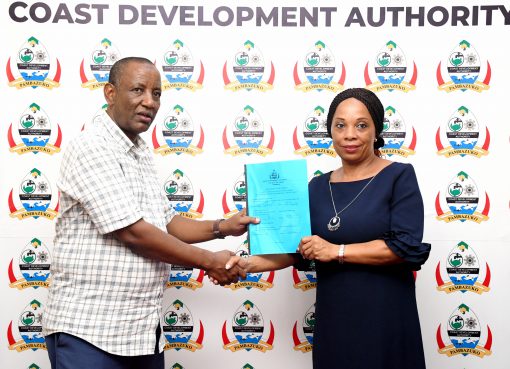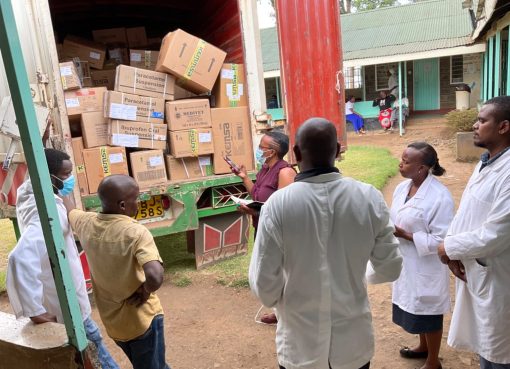Over 1000 teachers in Taveta and Wundanyi sub-counties in Taita-Taveta County stand to benefit from enhanced pay should Parliament endorse recommendations of the Education Committee that the two regions be classified as hardship areas.
Led by the Committee Chair and Tinderet MP, Julius Melly, the team toured several areas in the county where teachers do not receive hardship allowances. Amongst the areas they toured, include Ronge, Mwakaleri, Baghau, Wongonyi, Ghazi, Paranga, Kishushe, Daku and Sangenyi.
The Wundanyi MP, Danson Mwashako and officials from the Kenya National Union of Teachers (KNUT) and Kenya Union of Post-Primary Education Teachers (KUPPET) accompanied members of The House Education Committee in the tour.
Addressing hundreds of teachers in Wundanyi on Saturday, Melly said he was convinced that the areas qualified to be categorized as hardship zones and promised to have the recommendations of the committee debated in parliament.
“The demands to have the areas classified as hardship areas are legitimate. We will do our report and engage other government agencies to make sure teachers get their rightful dues,” said the chair.
The committee will also to hold meetings with Teachers Service Commission and Ministry of Education officials to understand why there exists a disparity in payment of hardship allowances.
The whole of Voi sub-county is classified as hardship area and all teachers in the region get hardship allowance pegged at 30 per cent of their basic salary. In Mwatate sub-county, some areas are considered hardship zones while others are not, but Wundanyi and Taveta sub-counties are not considered as hardship areas.
Since 2011, teachers’ unions have been pushing to have the whole county classified as a hardship area. They argue that most areas have no roads; the climatic conditions are dry and prone to human-wildlife conflict.
In July 2018, KUPPET through their Executive Secretary, Shedrack Mutungi wrote a petition to the National Assembly requesting that all teachers working in the county receive hardship allowances.
In May that year, over 1,000 teachers signed a petition asking parliament to gazette Wundanyi, Taita and Mwatate as hardship areas to enable them get hardship allowances.
The petition to the Clerk of the National Assembly notes that Public Service Policy directed that public servants working in hardship areas receive hardship allowances.
The petition noted that most teachers were unwilling to take up administrative duties in schools under areas not classified as hardship regions for fear of missing the allowances. This led to most schools in gazetted hardship areas having more teachers, while deserving schools in areas not yet classified as hardship zones reported an acute shortage of teachers.
In the same month, the Wundanyi MP,tabled a public petition over the non-payment of hardship allowances to teachers in remote regions in the county.
The legislator’s petition compelled the committee to tour the region on a fact-finding mission.
If the committee’s report is adopted, Taita-Taveta County will be classified as hardship zone, meaning all teachers in public schools will be entitled to hardship allowances.
Mutungi termed the Education Committee’s move to tour the region as a milestione, noting that thousands of teachers have suffered in those hardship areas, including Mwanda, Rong’e and Taveta without an extra penny.
“The committee has definitely seen what we have been, saying all along. These areas should be categorized as hardship because life there is very tough,” he reiterated.
On his part, Wundanyi MP, expressed hope that the committee would now push to have TSC allocate money for teachers in the region.
By Wagema Mwangi




